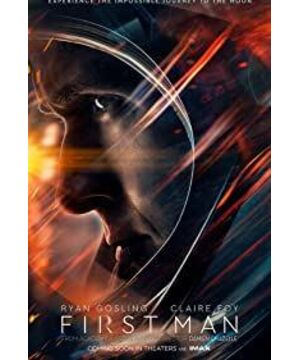2019 is the year in which the 1982 classic sci-fi movie "Blade Runner" took place. Before that, human beings in reality have spent the 2001 years of "2001: A Space Odyssey", the 2012 years of "I Am Legend", and the 2015 years of "Back to the Future", all safe and sound. The earth has not been destroyed, the robots have not slaughtered, the global virus has not been infected, and the past self has not taken the time machine to come to the door. Compared with the wanton imagination in those sci-fi classics, the reality of the 21st century is really a bit boring, and Kubrick didn't tell us how to stop being afraid and fall in love with short videos.
In the near future, Children of Man takes place in 2027, Terminator, Ghost in the Shell in 2029, I, Robot, and Twelve Monkeys in 2035, Minority Report in 2054 In 2057, "Sun Cataclysm" doesn't seem too far away. As long as the body is healthy and lived for a long time, the audience can witness each future in the movie story, and in reality they all become the past. Dreams are eroded by reality, those once vivid fantasies have condensed into amber and evolved into fossils.
This is not only an interest in the research of cinephiles, but also marks the temporal changes that have occurred, are and will be in the classic genre of science fiction films. Shortly after the opening of "First Man on the Moon", the writer Jules Verne is mentioned. More than 100 years ago, Méliès was inspired by Verne to shoot "Journey to the Moon", which was a crazy sci-fi imagination. If "First Man on the Moon" was born 80 years earlier, it would have been science fiction, but today, it has become a historical film looking back at the past.
Therefore, "The First Man on the Moon" has inevitably become a propositional composition from the very beginning. Although it takes place in space, despite its frequent display of technological devices and the use of theoretical terms, it is impossible for the creators to be imaginative, to allow alien monsters to appear, or to tamper with history, to kill the protagonist, to fail the moon landing, It's not Inglourious Basterds after all. This movie is like a given task, an unfree play, the audience's presupposition is too full, and there is only a little room for manoeuvre. It was a thankless challenge for director Damien Chazelle.
The authenticity of Armstrong's moon landing has been controversial, and since it has become common sense, it means that the ideological strategy has already taken effect. "First Man on the Moon" retells this incident, not to explain and defend some conspiracy theories. Even if Armstrong is true or false, there is no problem, just as the filmmaking itself is false, the important thing is that people are willing to believe it is true. The important thing is how the film can describe this thing, whether true or not, in a contagious manner.
Damien Chazelle's first and foremost approach is to target Armstrong personally, to capture his personal state, and to write from a personal point of view. In "The First Man on the Moon", the protagonist's family and professional life advance in parallel, one is the great human cause, the other is the meticulous parental shortcoming, the wife complains, and the child is self-willed. The two seem to be separate, seemingly incompatible - which is exactly right. It is precisely because of this contrast that is difficult to communicate and understand, and because of the gap between the individual and the system, that the mission of one party becomes the sacrifice of the other party, and the ideal of one party becomes the tool of the other party.
In terms of lens vocabulary, it is different from the director's previous work. "First Man on the Moon" uses a lot of photography techniques such as shaking, defocusing, and rapid pushing and pulling. It emphasizes details and emphasizes the eyes of the characters - for example, Armstrong will observe the cabin buzzing The buzzing flies will observe the traces reflected by the light on the windows, and draw personal physical and psychological feelings from this moment. In the family life part, the video style is similar to home video, full of retro flavor and private texture. This style also appeared in the imagination of another married couple at the end of "La La Land".
Of course, the music and sound effects of this film are particularly worth mentioning. "First Man on the Moon" won the best original soundtrack by beating films such as "Canis Island" and "A Quiet Place" at the Golden Globe Awards just past. . In the original sound, the theme song named Armstrong appears repeatedly in the film. The simple plucked strings and the gentle melody not only symbolize the tranquility of space, but also condense the grandeur of the universe into the hearts of small individuals once again, linking them with the memories of mortals. In the passages such as the out-of-control rotation of Lift-off No. 8, the sound effects that combine the alarm rhythm and metal noise are like ghosts themselves, highlighting the sense of crisis. Perhaps the most exciting is still the lunar landing at the climax. The film uses voice to speak for breath and gravity, as if entering a land of no one.
Damien Chazelle's film work has always had a power much greater than the protagonists. What separates Mia and Sebastian is not their class background, aesthetic preferences, or character habits in love, but the rules of Vanity Fair behind the city of stars.
The same is true for "The First Man on the Moon". Director Chazelle should be very aware of the difference between Armstrong's position as a character and NASA's, the distinction between the attitudes of the two, and the power operation behind all this. Borrowing the mouths of passers-by, the film criticized and satirized aerospace engineering more than once, bluntly saying that it was a face-saving project that cost the people and money. But like the previous work, Chazelle does not directly pit the protagonist against the great power. He has no intention of dismantling and discussing the power mechanism; he is more concerned about what the individual characters can do while the power is invisible.
In the film, Armstrong experienced the death of his friends and the separation of his relatives. He digested possible doubts in silence. It is difficult to say that this is a selfless spirit, it is more like seeing through the deception and the purpose, but still willing to devote himself to meet his own destiny silently. He has always been passive, and from the very beginning seemed to have given up on fighting and even communicating with big power. The attitude expressed in "First Man on the Moon" is more like: silent Armstrong, passive Armstrong, Armstrong accepting the power of the system, but not an unconscious chess piece. He is a man with real life, with physical perception. We only need to perceive his perception, nothing else, nothing else.
When he takes his small step, when the image and sound of the film closely stitch the audience's perception with the character - a giant leap for a human being is far away, compared to a small step for this man. It is true that this may be the output of a different attitude of American values, but the narrative and audio-visual language of the film once again triumphantly give the characters a soul and tremble the audience. After this scene in the movie, Armstrong never said a single line. All the declarations, slogans, cheers and cheers after that were made through news broadcasts, through the mouths of other people. There may be nothing at the end, and it may all be meaningless, but witnessing miracles in person is enough to make this speechless seem logical.
Going back to the science fiction mentioned at the beginning, creators can always adjust the hands of the clock backwards to write their imaginations decades later and hundreds of years later. After writing about space exploration, I will write about virtual reality and parallel time and space. But what really makes people remember is not those settings and shapes, but the sense of shock brought by meeting infinity and eternity with a weak body.
"First Man on the Moon" is not a science fiction film, it is a historical biopic, and can even be regarded as an inspirational professional drama. But it avoids grand perspectives and viewpoints, hides great power in the background, and sticks to the personal perception experience of the characters, so that in terms of theme and emotion, it can be compared with "Gravity" and "Interstellar" - showing human beings in The insignificance in front of the universe, and at the same time as being absolutely insignificant, a person may contain more than the thinking, feeling, memory and love of the universe.
View more about First Man reviews











